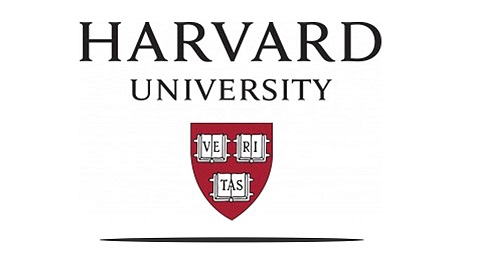
Harvard University today announced in a news release that the school has developed one of the world’s first PhD programs in Quantum Science and Engineering, a new intellectual discipline at the nexus of physics, chemistry, computer science and electrical engineering with the promise to profoundly transform the way we acquire, process and communicate information and interact with the world around us.
The University is already home to a robust quantum science and engineering research community, organized under the Harvard Quantum Initiative. With the launch of the PhD program, Harvard is making the next needed commitment to provide the foundational education for the next generation of innovators and leaders who will push the boundaries of knowledge and transform quantum science and engineering into useful systems, devices and applications.
“The new PhD program is designed to equip students with the appropriate experimental and theoretical education that reflects the nuanced intellectual approaches brought by both the sciences and engineering,” said faculty co-director Evelyn Hu, Tarr-Coyne Professor of Applied Physics and of Electrical at the Harvard John A. Paulson School of Engineering and Applied Sciences (SEAS). “The core curriculum dramatically reduces the time to basic quantum proficiency for a community of students who will be the future innovators, researchers and educators in quantum science and engineering.”
“Quantum science and engineering is not just a hybrid of subjects from different disciplines, but an important new area of study in its own right,” said faculty co-director John Doyle, Henry B. Silsbee Professor of Physics. “A Ph.D. program is necessary and foundational to the development of this new discipline.”

“America’s continued success leading the quantum revolution depends on accelerating the next generation of talent,” said Dr. Charles Tahan, Assistant Director for Quantum Information Science at the White House Office of Science and Technology Policy and Director of the National Quantum Coordination Office. “It’s nice to see that a key component of Harvard’s education strategy is optimizing how core quantum-relevant concepts are taught.”
The University is also finalizing plans for the comprehensive renovation of a campus building into a new state-of-the-art quantum hub – a shared resource for the quantum community with instructional and research labs, spaces for seminars and workshops, and places for students, faculty, and visiting researchers and collaborators to meet and convene. Harvard’s quantum headquarters will integrate the educational, research, and translational aspects of the diverse field of quantum science and engineering in an architecturally cohesive way. This critical element of Harvard’s quantum strategy was made possible by generous gifts from Stacey L. and David E. Goel ‘93 and several other alumni.
“Existing technologies are reaching the limit of their capacity and cannot drive the innovation we need for the future, specifically in areas like semiconductors and the life sciences,” said David Goel, co-founder and managing general partner of Waltham, Mass.-based Matrix Capital Management Company, LP and one of Harvard’s most ardent supporters. “Quantum is an enabler, providing a multiplier effect on a logarithmic scale. It is a catalyst that drives scientific revolutions and epoch-making paradigm shifts.”
“Harvard is making significant institutional investments in its quantum enterprise and in the creation of a new field,” said Science Division Dean Christopher Stubbs, Samuel C. Moncher Professor of Physics and of Astronomy. Stubbs added that several active searches are underway to broaden Harvard’s faculty strength in this domain, and current faculty are building innovative partnerships around quantum research with industry.
“An incredible foundation has been laid in quantum, and we are now at an inflection point to accelerate that activity,” said SEAS Dean Frank Doyle, John A. and Elizabeth S. Armstrong Professor of Engineering and Applied Sciences.
To enable opportunities to move from basic to applied research to translating ideas into products, Doyle described a vision for “integrated partnerships where we invite partners from the private sector to be embedded on the campus to learn from the researchers in our labs, and where our faculty connect to the private sector and national labs to learn about the cutting-edge applications, as well as help translate basic research into useful tools for society.”
Harvard will admit the first cohort of PhD candidates in Fall 2022 and anticipates enrolling 35 to 40 students in the program. Participating faculty are drawn from physics and chemistry in Harvard’s Division of Science and applied physics, electrical engineering, and computer science in SEAS.
Candidates interested in Harvard’s PhD in Quantum Science and Engineering can learn more about the program philosophy, curriculum, and requirements here.
“This cross disciplinary PhD program will prepare our students to become the leaders and innovators in the emerging field of quantum science and engineering” said Emma Dench, dean of the Graduate School of Arts and Sciences. “Harvard’s interdisciplinary strength and intellectual resources make it the perfect place for them to develop their ideas, grow as scholars, and make discoveries that will change the world.”
Harvard has a long history of leadership in quantum science and engineering. Theoretical physicist and 2005 Nobel laureate Roy Glauber is widely considered the founding father of quantum optics, and 1989 Nobel laureate Norman Ramsey pioneered much of the experimental foundation of quantum science.
Today, Harvard experimental research groups are among the leaders worldwide in areas such as quantum simulations, metrology, quantum communications and computation, and are complemented by strong theoretical groups in computer science, physics, and chemistry.
For more market insights, check out our latest quantum computing news here.















